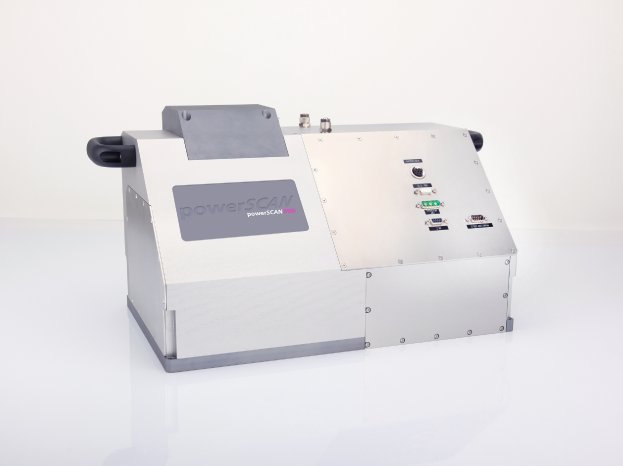Laser trimming can offer considerable process advantages in any industrial sector that involves workpiece fabrication via cutting dies or punching tools. For some time now, CO2 lasers have been increasingly employed for trimming such diverse organic materials as paper, cardboard, wood, textiles and leather. After all, lasers teamed with a scanner work cleanly as well as wear-free, and they allow flexible changing of cutting shapes anytime. To users, that's a huge advantage for complex cutting shapes or patterns, and also for individualized products and small production runs.
SCANLAB's new 3D scan system is a flexible solution that can significantly reduce tool and process costs. At the press of a button, it's FLEX option enables step-less, motorized attainment of image field sizes from 250 x 250 mm² up to 1500 x 1500 mm². Thus, various spot sizes and working distances can be simultaneously set for a range of applications. Here, the integrated z-axis extends the image field into the third dimension, thereby facilitating precise laser processing, even of non-planar workpieces.
The powerSCAN II is available with assorted application-specific tunings – for high line speeds or for high contour-fidelity when cutting complex patterns. The digital servo electronics permits easy switching between these tuning options to always ensure the perfect dynamics settings for each application.
Industrial suitability and small footprint
Compared to its predecessor, the new scan head is considerably more compact. Its footprint alone has shrunk by about a third, and height has been reduced – a tremendous gain for integrators and machine builders who can now more easily position and simultaneously operate individual or multiple systems side-by-side. The new housings are sealed and dust-protected. Furthermore, the beam exit is equipped with an exchangeable window for protection against process emissions. Rounding out the system's industrial suitability is the continuous status monitoring of all scan head axes, and transmission of a combined interlock signal. In the event of a fault, this can facilitate quick system shutdown and thus prevent wastage or further damage.
"The powerSCAN II signifies the continuous development of our product portfolio. Flexibility via a 'quasi fourth axis' and fundamentally redesigned digital electronics result in an exceptionally attractive overall package for high-power applications with large image fields," explains SCANLAB GmbH CEO Georg Hofner. "Initial test systems have already been shipped and are being put through their paces in industrial processing tasks."


